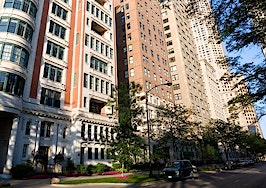- Chicago's Englewood neighborhood is a "food desert."
- At this new location Whole Foods will offer produce and other products at a lower price point than at its other stores.
- The project presented minimal lease-up or construction risk to investors.
Does a Whole Foods lead the way for gentrification of a neighborhood?
There are plans for a Whole Foods to be the catalyst that transforms Englewood, one of Chicago’s most dangerous neighborhoods– and outside investors are on board.
Via a partnership with the city of Chicago and locally-based DL3 Realty, Whole Foods will anchor a five-acre retail development in Englewood, a neighborhood that is considered a food desert- an area that lacks grocery stores or access to fresh food.
When financing the development, dubbed Englewood Square, DL3 Realty utilized crowdfunding platform Fundrise to raise $500,000 in preferred equity. The amount of capital sought was raised from 61 investors, from 21 states, in less than 48 hours according to Ben Miller, CEO of Fundrise, who noted from an income point of view and from a cost of construction standpoint this deal made sense for investors.

Whole Foods image via Shutterstock.
“It has a good basis because of the public support,” he said.
The development has received nearly $7.7 million in public subsidies, which includes nearly $4.2 million in New Market Tax Credits.
The project also carried with it minimal construction risk, as the land was acquired from the city for $1 in mid-September, with site work completed and pads ready for vertical construction. The pad-ready land was said to be worth roughly $3.1 million. Additionally, at the time of funding the project was already 75 percent pre-leased, as Starbucks and Chipotle had signed on as complementary tenants.
Fundrise estimates individuals that invested in this project will receive a 10 percent gross annual return after 24 months.
For Miller, teaming with Whole Foods had been a multi-year goal, as Fundrise tried to invest in a recent Detroit project. That deal followed the same format, set up shop in a rougher urban location and offer conventional affordable produce, along with organic options, at a lower price point than some of its other stores.
Because Fundrise prefunds investments prior to seeking out investors via its platform, Miller visited the Detroit location and found the parking lot to be packed and the store operating successfully.
Construction of the Englewood development is currently underway with completion slated for spring of this year. The project is part of a larger initiative nearly aimed at redeveloping the four-way intersection in Englewood near Kennedy King Community College. The city currently owns eight additional acres that in the future should feature additional retail, commercial and institutional space.









